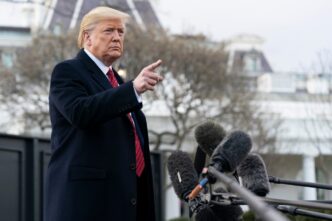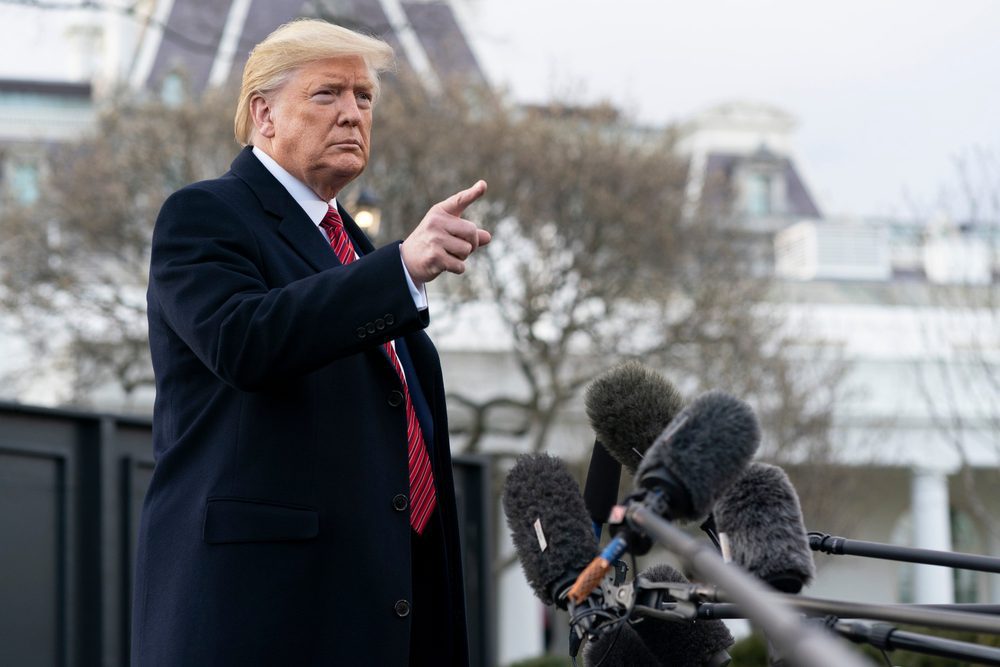Executive Summary
- President Trump’s actions against media outlets, including ABC’s suspension of Jimmy Kimmel, are being compared by critics to Hungarian Prime Minister Viktor Orbán’s tactics for consolidating power and controlling media.
- Trump’s strategy involves leveraging government influence, applying legal and financial pressure through lawsuits and FCC regulatory probes, and incentivizing media owners to align with his administration.
- Free speech advocates, such as the ACLU, warn that these actions, which include targeting and silencing critics, pose a grave threat to First Amendment freedoms and American democratic norms.
The Story So Far
- President Donald Trump’s recent actions against media outlets, including the suspension of Jimmy Kimmel, are widely seen by critics as mirroring tactics employed by Hungarian Prime Minister Viktor Orbán to consolidate power and control media. This strategy involves leveraging government influence, applying legal and financial pressure through lawsuits and regulatory probes, and publicly targeting critics to silence opposition and incentivize media owners to align with the administration, thereby raising concerns about American democratic norms and free speech.
Why This Matters
- The comparison of President Trump’s actions against media outlets, including ABC’s suspension of Jimmy Kimmel, to Hungarian Prime Minister Viktor Orbán’s authoritarian tactics signals a concerning erosion of American democratic norms and First Amendment freedoms. This strategy, which leverages government influence, applies legal and financial pressure, and publicly targets critics, risks fostering a climate of self-censorship among media organizations and owners, potentially leading to a more controlled information landscape and less objective news coverage in the U.S.
Who Thinks What?
- Critics and free speech advocates, including the ACLU and scholars like Gábor Scheiring, contend that President Donald Trump’s actions against media outlets, such as the suspension of Jimmy Kimmel and the application of legal and regulatory pressure, mirror Viktor Orbán’s tactics to consolidate power and suppress dissent, posing a grave threat to First Amendment freedoms.
- Major media owners, including ABC, CBS, Nexstar, and Sinclair, appear to be complying with the Trump administration’s pressure by settling defamation lawsuits and pulling critical programming, with observers suggesting their actions are influenced by financial incentives and the need for FCC approvals.
President Donald Trump’s recent actions against media outlets, culminating in ABC’s suspension of late-night host Jimmy Kimmel, are being widely compared by critics and analysts to tactics employed by Hungarian Prime Minister Viktor Orbán to consolidate power and control media in his country. This approach, characterized by leveraging government influence, applying legal and financial pressure, and publicly targeting critics, has raised significant concerns among free speech advocates about its implications for American democratic norms.
Parallels to European Strongman Tactics
According to scholars who have observed Hungary’s democratic backsliding, Orbán’s strategy involved weaponizing government levers for partisan gain, pressuring private media to align with the party, and punishing those who resisted. Gábor Scheiring, a former member of the Hungarian parliament and now an assistant professor at Georgetown University Qatar, stated that President Trump and his allies appear to be utilizing a similar playbook against U.S. media organizations.
Scheiring noted that the decisions by ABC to sideline Kimmel and CBS to cancel “The Late Show with Stephen Colbert” last July both echo what he terms “Orbanism.” He described Orbán’s method as weakening public broadcasting and muzzling independent media through “autocratic carrots and sticks,” incentivizing owners to conform.
Kimmel Suspension and Free Speech Concerns
The decision by Disney’s ABC to sideline Jimmy Kimmel, a vocal critic of Trump, is cited as the latest example of these tactics. Free speech organizations, including the ACLU, have condemned the move as part of a broader effort by Trump to silence opposition.
The ACLU issued a strong statement, asserting, “This is beyond McCarthyism. Trump officials are repeatedly abusing their power to stop ideas they don’t like, deciding who can speak, write, and even joke.” The organization warned that the administration’s actions, combined with ABC’s capitulation, pose “a grave threat to our First Amendment freedoms.”
Legal and Regulatory Pressure
Trump’s strategy extends to legal maneuvers and the application of governmental regulatory powers. Disney settled Trump’s defamation lawsuit against ABC last December, and Paramount settled a similar suit against CBS last July, despite legal experts suggesting both companies had strong cases. Trump is currently pursuing lawsuits against The Wall Street Journal and The New York Times.
The administration has also utilized regulatory channels. Brendan Carr, Trump’s appointee as FCC chair, has initiated probes into several TV station owners disfavored by Trump, engaging politically in ways that past FCC officials typically avoided. Scheiring drew a direct parallel to Orbán’s use of media authority to induce self-censorship, noting that Carr’s public threats to ABC regarding Kimmel felt “very similar.”
Media Owners’ Compliance
Before ABC ultimately sidelined Kimmel, at least two major TV station owners, Nexstar and Sinclair, had already pulled his show from their stations. These companies, which require FCC approval for pending deals, have positioned themselves as allies of the Trump administration, prompting public interest groups to voice concerns about the objectivity of their news coverage.
Scheiring observed that Orbán systematically targeted local outlets, either acquiring them directly or coercing them into compliance. He suggested that for U.S. media owners, “the financial incentives are clear: it’s easier to make money through loyalty to the Trump-state.”
Targeting Critics
The suspension of Kimmel’s show also serves to temporarily remove a prominent critic of Trump, a tactic Scheiring identified as a priority for leaders adopting authoritarian playbooks. Trump had previously called for ABC to cancel Kimmel, indicating a pattern of personally targeted campaigns.
Scheiring emphasized that “personally targeted campaigns and character assassinations are the lifeblood of Orbán’s regime too: they demonstratively raise the cost of speaking up and speaking out.” This approach, he argued, discourages dissent by making the personal and professional consequences for critics increasingly severe.








